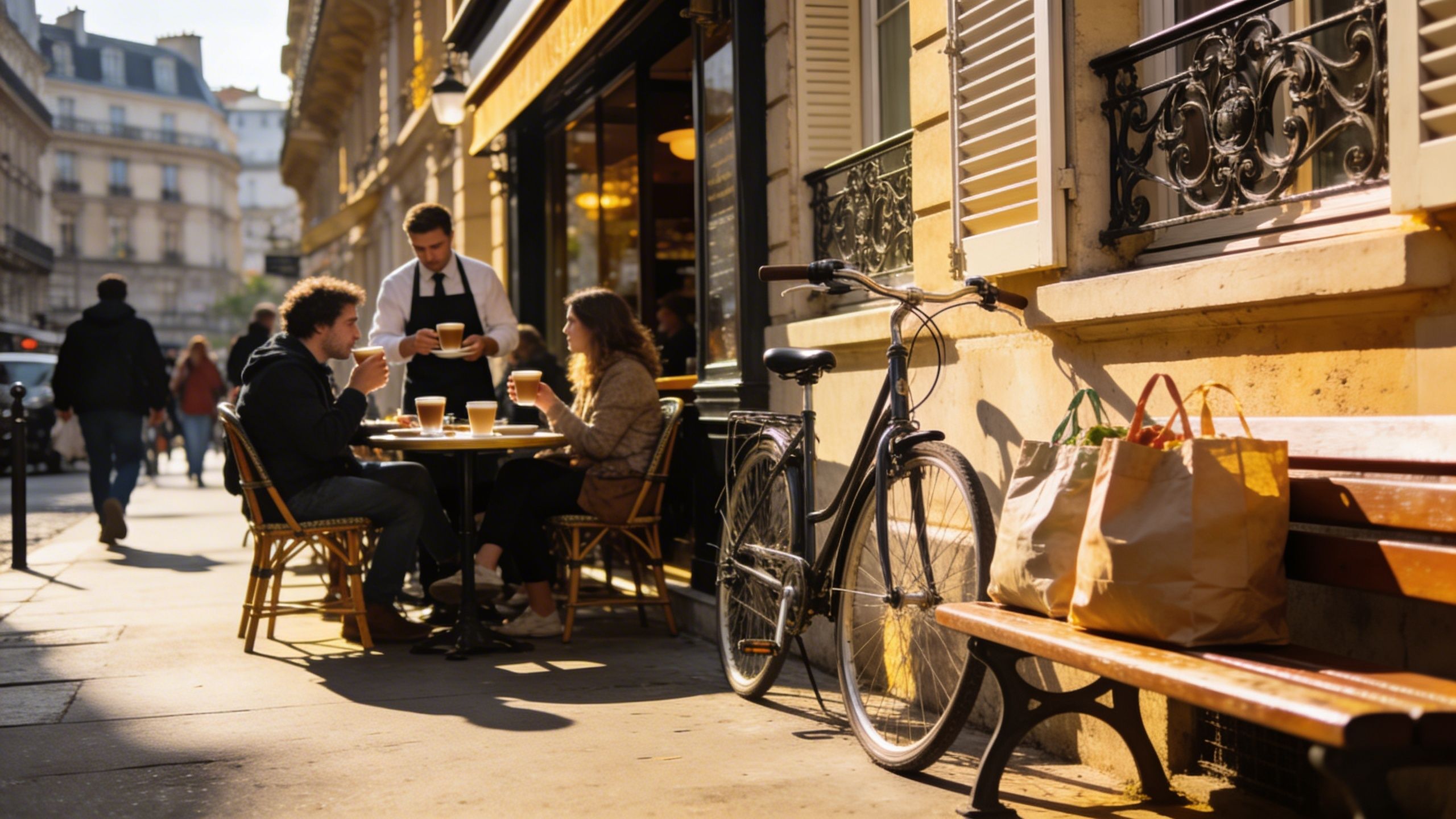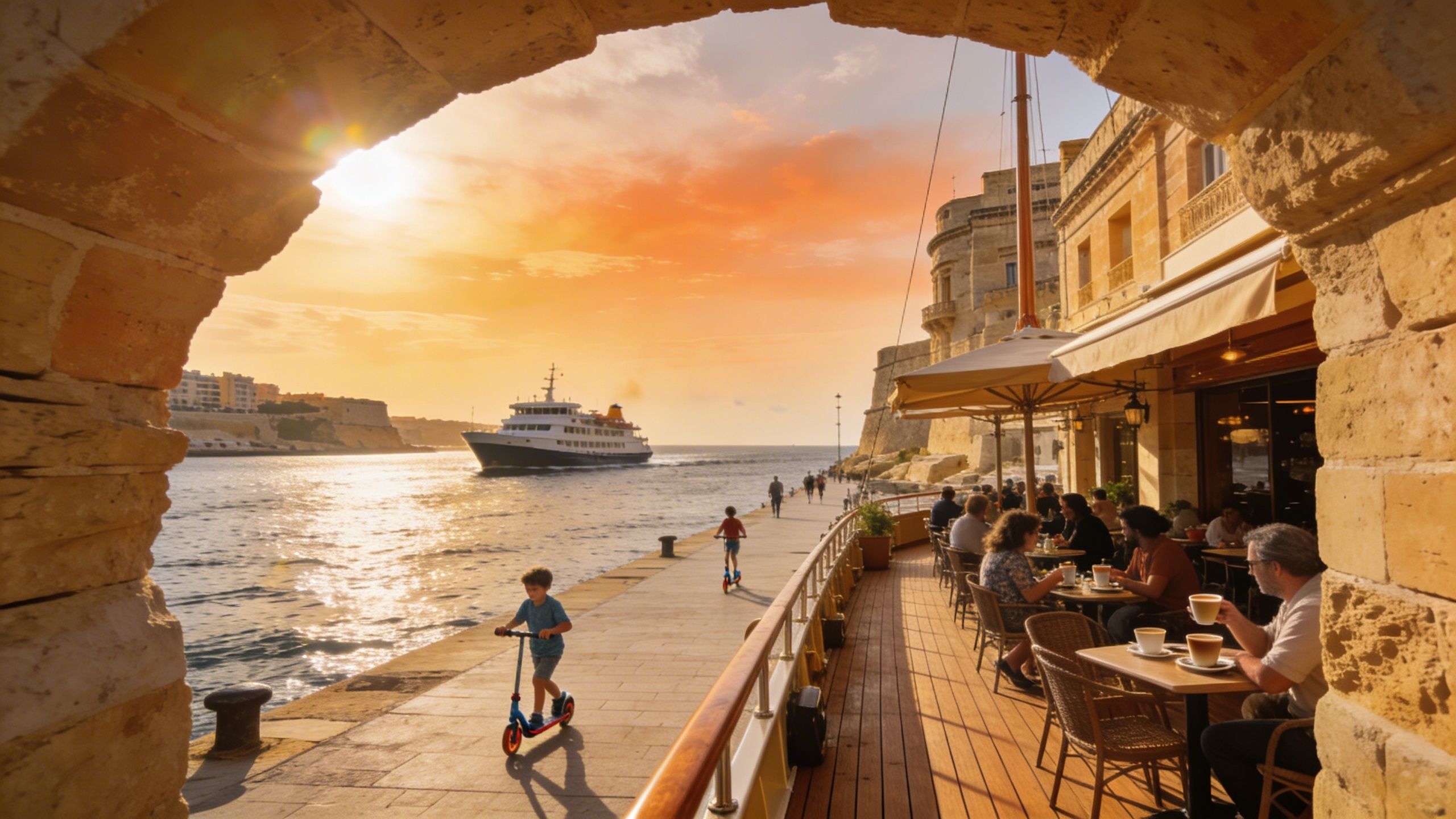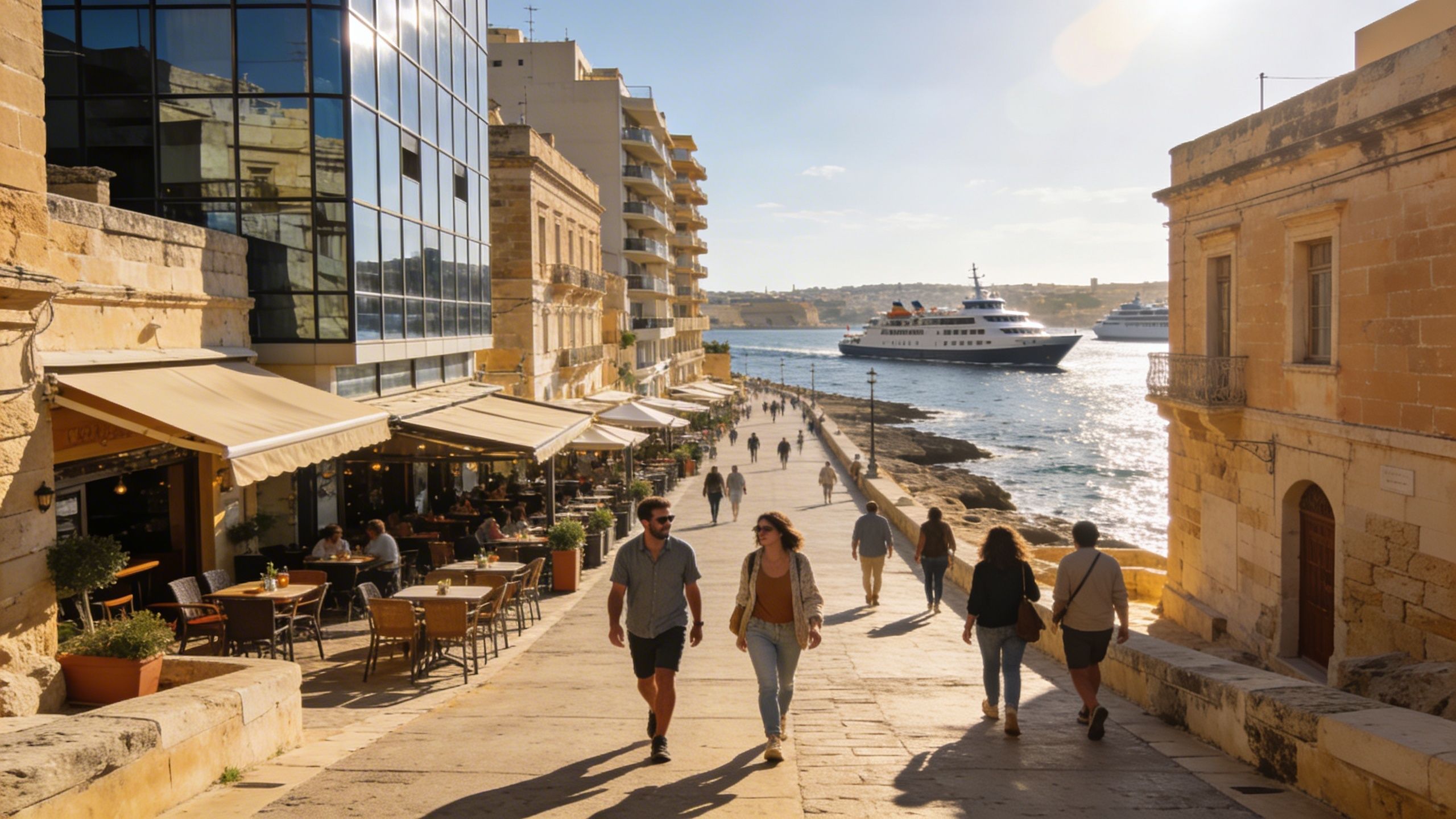Croatia: Fall in Love First, Check the Fine Print
Fall for Croatia’s coast, then buy with discipline: coastal price growth is strong, transactions cooled in 2025, and tax reforms change carrying costs — visit off-season and verify permits.
Imagine stepping out for morning espresso on Split’s Marmont Street, then crossing to the Riva to check a prospective terrace view. Croatia still delivers that Adriatic rhythm: slow mornings, busy harbours, and evenings that centre on food and family. But the dream and the deed are different things — buyers must read signals in prices, regulation and seasons before signing.
Living the Croatian life — texture before transaction
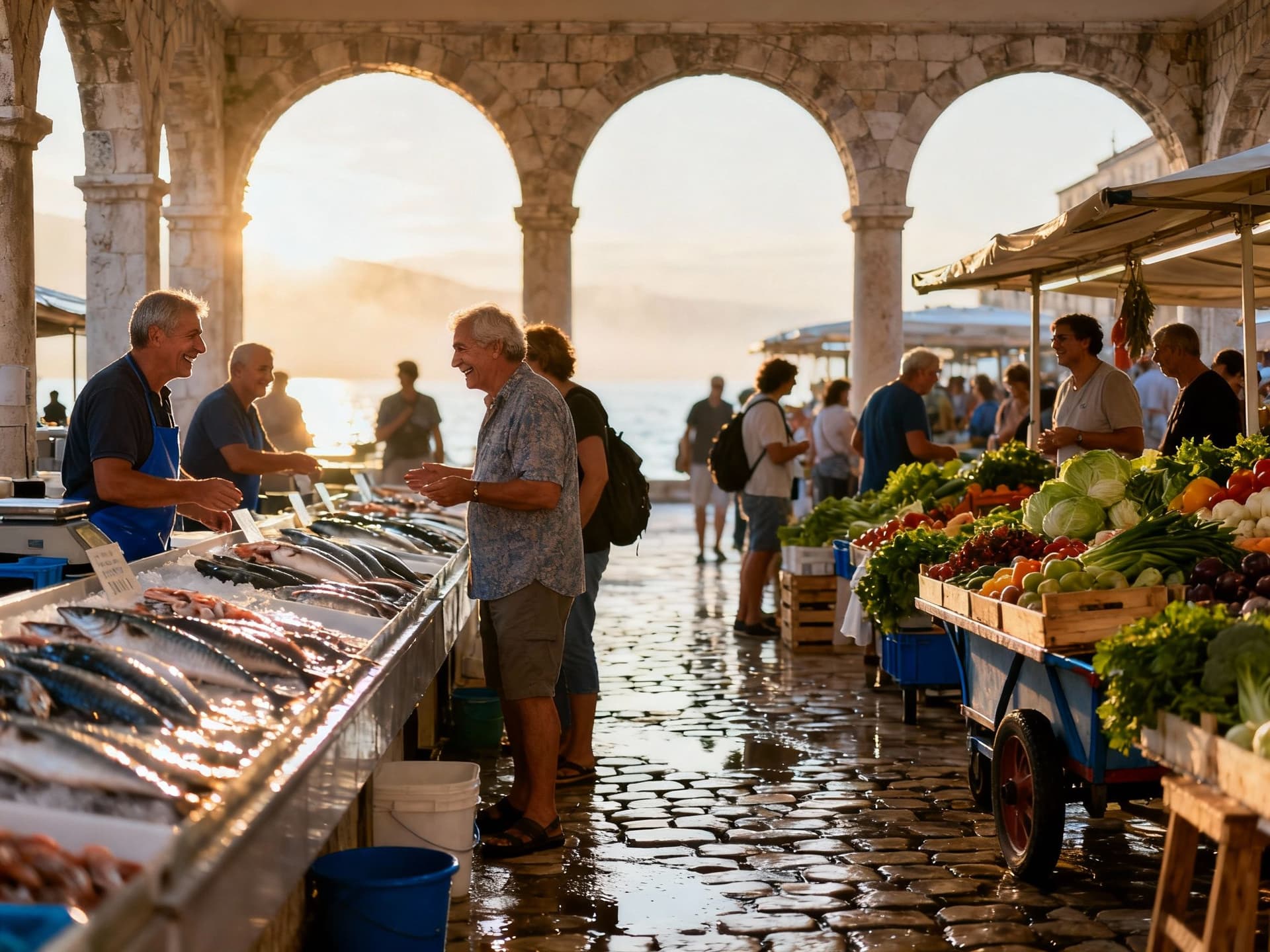
Croatia is a patchwork of coastal towns, island communities and an inland capital with a quiet, local energy. In Dubrovnik you’ll hear old city footfall and tourist-season bustle; in Hvar, yachts and late dinners; in Istria’s Rovinj, café-lined stone streets and a weekend food market. These textures shape how a property feels across seasons — what’s charming in July can be quiet and far cheaper to maintain in November.
Neighborhood spotlight: Split (Veli Varoš to Bacvice)
Veli Varoš, the old fishermen’s quarter, still smells of sea and grilled fish at dusk; Bacvice offers sandy beaches and a louder night scene. Walkability is high, terraces are frequent, and small local grocers matter more than supermarkets. For buyers seeking daily life on foot, a modest apartment near the Riva will cost more per square metre but deliver an immediately lived-in lifestyle.
Food, market life and seasonal cadence
Weekend markets define the Croatian week: fish stalls at Split’s Green Market, truffles and Istrian olive oil stands near Motovun, and family-run konobas that close in low season. Food shapes property choices — proximity to a market or kitchen garden changes how you’ll use a home. Many expats tell us they chose smaller kitchens because they expected to eat out, then discovered they loved cooking with local produce.
- Lifestyle highlights: morning markets in Split; sunset swims at Bačvice; truffle weekends in Istria; island daytrips from Split harbour; seafood konoba meals in Stari Grad.
Making the move: lifestyle decisions that affect legal and tax outcomes
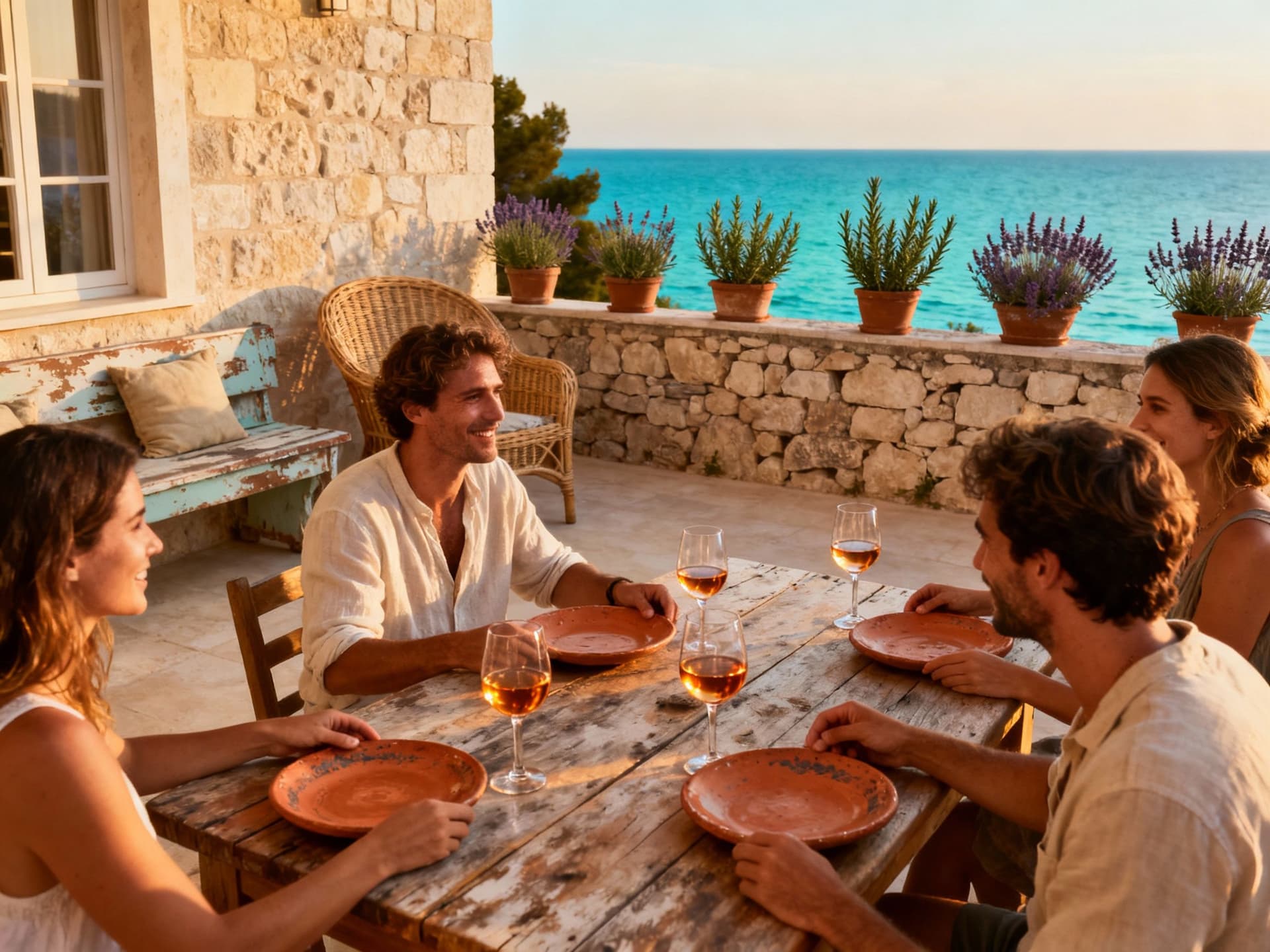
The coastal lifestyle you buy comes with legal and fiscal contours. Recent official statistics and news coverage show strong coastal price growth but a cooling in transaction volumes during 2025, and tax reform discussions that directly affect rental economics. Understanding property tax, VAT on new builds and the evolving policy on empty homes should inform where and what you buy.
Property types and how they shape living
Stone Dalmatian houses demand different upkeep than modern Istrian renovations. A waterfront apartment gives convenience and rental appeal but higher maintenance and local levies. If you want year-round life, prioritise insulation, central heating and easy road access; if it’s a summer house, focus on terraces, ventilation and simple services.
Working with experts who know both lifestyle and law
A local notary and lawyer protect the transaction; a seasoned agent connects lifestyle wishlists to neighbourhood realities. Choose advisers who show you utility bills, residency histories and short-term rental regulations rather than glossy photos alone. Expect full disclosure on coastal building permits and possible restrictions related to waterfronts or protected zones.
- Step-by-step: lifestyle-first buying checklist 1. Visit outside high season to test quiet-month life. 2. Request recent utility and maintenance bills to estimate running costs. 3. Verify zoning and permit history with a lawyer before signing. 4. Check short-term rental rules at county level if you plan to let the property. 5. Confirm tax liabilities (VAT vs transfer tax) for the specific unit.
Insider knowledge: what expats wish they'd known sooner
Many buyers fall for summer glamour and underestimate winter realities: closed restaurants, limited ferry schedules and a quieter social scene. Others ignore new tax policy aimed at discouraging empty properties and favouring longer-term rentals — that affects yield calculations. The best buyers match emotional reasons for buying with a conservative financial plan that assumes some months of vacancy.
Cultural integration and day-to-day reality
Learn key Croatian phrases, join local associations and use the market to meet people — those actions accelerate integration. Expect slower administrative timelines than in some northern European countries; patience is part of the rhythm. Practicality pays: a friendly neighbour who knows a reliable builder or plumber will save you weeks of hassle.
Long-term lifestyle and regulatory watchpoints
Property prices have surged in coastal hotspots but transactions recently cooled, signalling a buyer’s market may emerge in some micro-locations. Tax reforms proposed in 2024 may change carrying costs, especially for owners of empty short-term rental units. Monitor official DZS statistics and national tax announcements before final offers.
- Red flags and local risks: unclear permits; properties without documented utility connections; island logistics (seasonal ferries); unresolved boundary disputes; and missing energy performance certificates.
- Quick negotiation priorities 1. Seek a conditional deposit clause linked to permit verification. 2. Cap vendor repairs in writing and agree on an independent technical survey. 3. Clarify which taxes apply (VAT on new builds vs 3% transfer tax on resale). 4. Add a clause addressing any pending local tax changes or municipal levies.
Conclusion: Croatia delivers a memorable life if you pair romance with rigour. Fall for a place first — its market, community and food will guide your choice — then protect that feeling with clear legal steps and conservative financial expectations. When you’re ready, work with local experts who translate lifestyle cues into verified deeds and make the transition from visitor to neighbour sustainable.
Dutch relocation advisor who moved to Marbella in 2016. Guides Dutch buyers through visa paths, relocation logistics, and balance of lifestyle with value.
